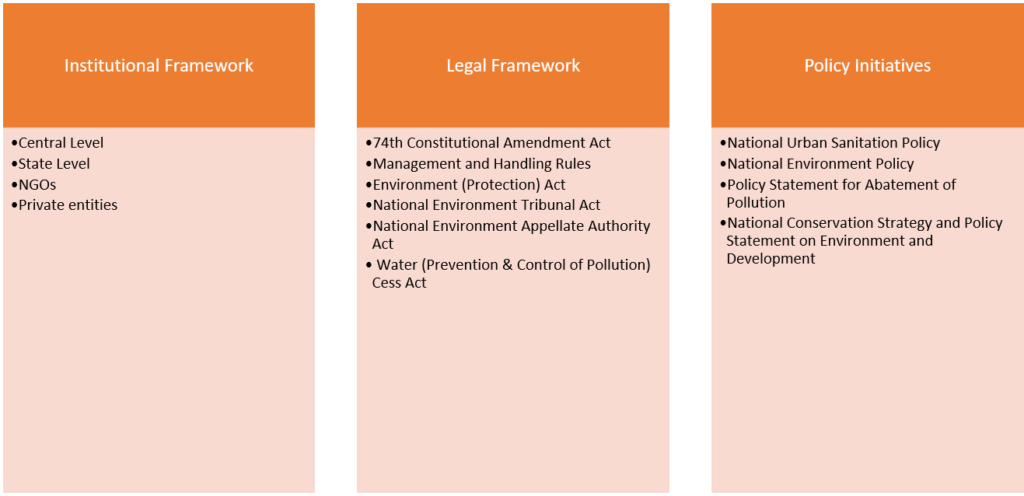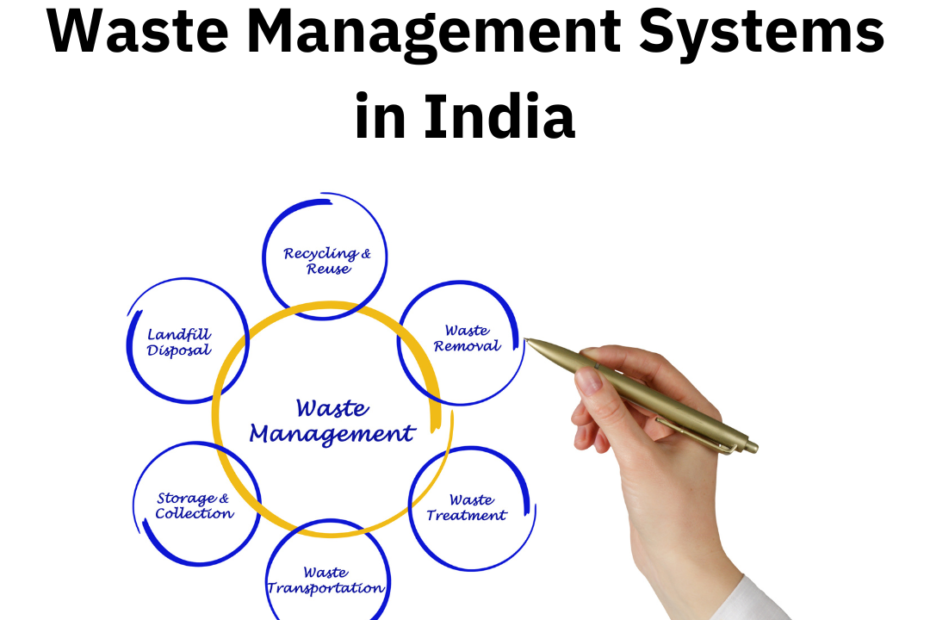For a big country like India, with 1.4 billion people living in metros, cities, towns and villages, waste management is a critical issue and needs to be tackled effectively. We have seen that during the last decade many initiatives have been taken up by the government, and communities to increase awareness, build infrastructure to manage the process, and promote behavioural changes among citizens to play an active role in the waste management system.
Transformation at a large scale requires an effective governing system and over the years policies, frameworks and regulations were developed to implement effective waste management across every level. As a result, many cities have improved considerably in terms of cleanliness, sanitation and waste management practices.
So, what are these policies or frameworks that are helping our country in making its waste management practices better?
Broadly, there are legal acts, rules, and policy initiatives such as the environment protection Act and the National Urban Sanitation policy that provides guidelines to follow for citizens and authorities. Being the biggest democracy in the world, we have different centralised and decentralised governing systems, and institutional governance at various levels to foresee the implementation of these acts and policies. A glimpse of several legal acts and policies followed:

Apart from these frameworks that govern waste management at the national level, the government has also released waste management rules in 2016 that simplify the responsibilities of waste generators, waste collectors, authorities etc. and direct them on proper handling of waste. Some salient features of the Waste Management Rules 2016 are discussed briefly-
For Waste Generators – Waste generators can be anyone such as households, gated communities, manufacturers, industries etc. These rules are guidelines for all for proper disposal of waste. Here are some of the highlights of the rules
- The first step towards effective waste management is to create the habit of waste segregation at the source. All waste generators have the primary responsibility to segregate waste into three categories – wet, dry, and sanitary hazardous waste. The segregated waste should be disposed of to authorized waste collectors or municipalities.
- For Special Economic Zone, industrial estate, and industrial park developers, it is mandatory to allocate at least 5% of the total area of the plot for waste recovery and recycling facilities.
- Any manufacturers or brand owners using non-biodegradable packaging material are responsible to place a system to collect back such waste.
- For any industry or manufacturing plant, if generating any waste having high calorific value then such waste should be used for co-processing in cement or thermal power plants.
Waste Collectors – Waste collectors could be local authorities, municipalities, private entities working in waste collection or waste processing, recyclers etc.
- In the case where the processing of biodegradable waste such as composting, bio-methanation etc. is carried out within the premises, residual waste should be collected by a waste collecting agency or as directed by the local authority.
- Waste collectors are entitled to receive user fees from waste generators and can impose fines in case of littering or non-segregation of waste.
- Waste collectors from the informal sector like waste pickers/ rag pickers and waste dealers/ kabadiwalas should be integrated into the formal system by State Governments and local authorities.
Apart from all these policies, and regulations in place, bringing phenomenal transformation also requires different societal, government and private entities coming together. In recent years, we have observed alliances between public-private, community-private, and private-private that are helping in realising its goal to achieve Swachh Bharat. When it comes to deploying an effective waste management system public, private, formal, and informal each sector plays a crucial role. With such alliances coming together and implementing the waste management practices following the guidelines and policies as well as active participation from citizens and communities, we will be able to solve one of our major problems at the mass level.
Sources-
https://home.iitk.ac.in/~anubha/H16.pdf
https://www.teamleaseregtech.com/updates/article/8301/solid-waste-management-amendment-rules-2020/
https://archive.pib.gov.in/documents/rlink/2016/apr/p20164504.pdf
https://vikaspedia.in/energy/environment/waste-management/solid-waste-management-rules
